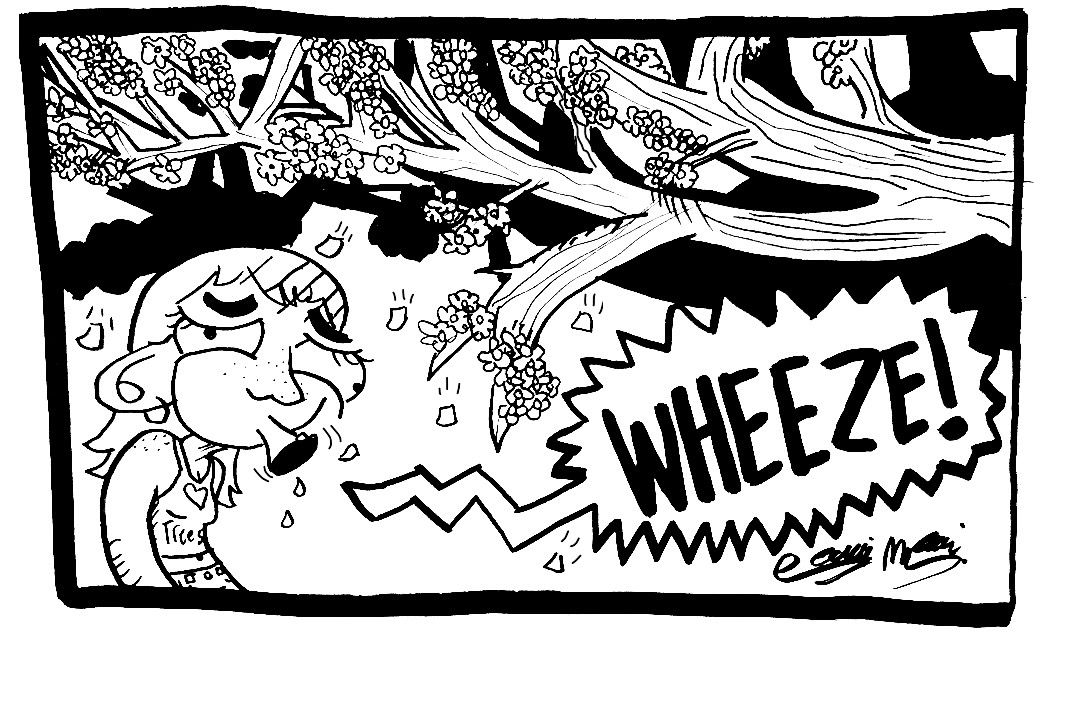Every so often, it’s good to look at the big picture.
Two weeks ago, when I first received an e-mail inviting me to participate in a luncheon with a team from the Middle States Commission on Higher Education, I thought, “Hey, free lunch, why not?” But I’m happy to say the experience turned out to be more than just free food (don’t worry, though. Lunch was provided).
For those of you wondering what Middle States is, you are not alone. I found out Monday that it’s basically the commission that accredits universities like GW. Accreditation is extremely important; if GW weren’t accredited, students here wouldn’t qualify for financial aid.
At a school like GW, accreditation is virtually guaranteed, so the important aspect of it is really the process. Middle States sends a team of professors and administrators from universities across the country to spend several days at the school, evaluating progress and making recommendations for ways that the University can improve. The Middle States team met with almost everyone – University President Steven Knapp, the deans, the executive board of the Faculty Senate and a group of students.
So from the beginning, the lunch became much more interesting than I expected, if only because I gained a little insight into the process. At each table, four to six students sat with one member of the accreditation team. The talk was typical – we were asked about our experiences at GW and about student opinion on things like financial aid, professors, communication with the administration and so on.
Out of all this talk, the question that struck me most was one that many people may have thought about before: if you could tell President Knapp to do one thing to improve GW, what would it be? At that moment, I didn’t know what to say.
There were many possibilities, of course. I thought about the need to work with student organizations like GW STAND and GreenGW and pursue socially responsible investment policies. I thought about cutting through some of the ridiculous amount of red tape found all over campus, so that dealing with minor problems doesn’t have to be so painful. I thought about how great it would be if student organizations, the heart of GW, could receive the financial support they deserve. I even thought about asking Knapp to expand dining options and to stop forcing me to eat at J Street.
I thought about all those things, but in the end none of them really seemed big enough. The question was aimed at something that would improve GW as a whole, and all of these ideas for improvement were based only on my narrow sphere of interest. Looking at things like this, it’s easy to complain. But we have to be careful of forgetting to look in terms of the big picture, too.
I don’t want to be too preachy, because I complain as much as anyone does. I hate the wild goose chases I’m constantly sent on from office to office. I hate the hoops that student orgs have to jump through just to be re-approved every year. But I want to share what one student at my table, a senior, said when asked about what’s wrong at GW.
He said that he has a hard time listening when people complain because, as a senior, he remembers when things were so much worse. He said that since his freshman year, GW has improved a great deal, and people should remember that when they complain about things like Sodexho and housing.
That got me thinking that I shouldn’t be so narrow-minded in my approach to GW’s problems. Even though I’m just a sophomore, I’ve seen a lot of things improve just from last year alone, and so has everyone else.
I am not suggesting that people should stop thinking critically about GW; the school will never improve if students don’t evaluate and criticize. But thinking in terms of the bigger picture can help frame small complaints in terms of larger problems. For instance, the larger problem with this year’s mandatory dining fiasco is the University’s unresponsiveness to overwhelming student demand. That kind of problem encompasses a large number of issues, and that is the type of problem the University must solve before any of the little issues can be adequately addressed. The solutions to these larger-scale problems line the path to real improvement.
The writer, a sophomore majoring in history and political science, is a Hatchet columnist.




